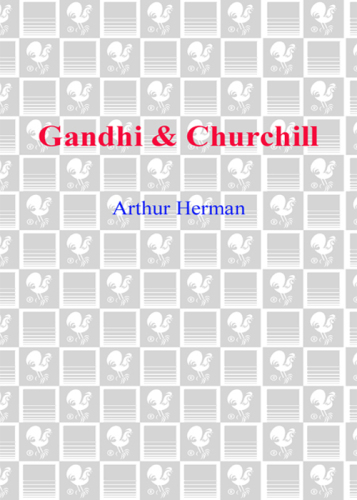
Gandhi & Churchill
The Epic Rivalry that Destroyed an Empire and Forged Our Age
کتاب های مرتبط
- اطلاعات
- نقد و بررسی
- دیدگاه کاربران
نقد و بررسی

March 10, 2008
Historian Herman (How the Scots Invented the Modern World
) paints a forceful portrait of the emergence of the postcolonial era in the fateful contrast—and surprising affinities—between two historic figures on opposite sides of the struggle for Indian independence. Churchill and Gandhi, both elites in their respective milieus, began their careers with remarkably similar perspectives and trod intersecting paths across India, South Africa and England. They shared an obsession with physical courage (albeit channeled in different ways) that tied conceptions of masculinity to larger ideas of racial identity and moral superiority—and India loomed large in their triumphal careers, ultimately frustrating both men’s idealism. While Herman’s dual biography artfully depicts the personalities of the two men, he gives short shrift to the more complex forces of British imperial decline, Indian nationalism and the emergence of the postwar order (for example, Herman helpfully but also too neatly explains the dogged centrality of India and the British raj in Churchill’s worldview as an act of filial loyalty to his beloved father) But the author also takes careful account of the constellation of modern and antimodern currents of late Victorian thought in situating these vastly influential figures in a fascinating narrative of their times.

Starred review from April 1, 2008
The complex task of drawing comparison and contrast between two of the most chronicled lives of the 20th century is easily and compellingly handled by Herman ("How the Scots Invented the Modern World"). Spanning the globe and dozens of decades, Herman never sinks into the clichés of these two men's biographies but rather deconstructs some of the cherished myths surrounding them while maintaining a warm and lively tone. From India to South Africa to London, they seemed to cross paths in life yet could never reach a true understanding of each other. Churchill, the ardent defender of the British Empire, had trouble accepting modern political realities and fixated upon Gandhi as the ultimate threat to his beloved England's legacy. Gandhi, in turn, achieved global superstar status but could not unite Indian politics and eventually became a hindrance, then an irrelevance, to Indian independence. These two men may have been presented historically as enemies, or at least proxy enemies, but Herman brings out the true issues that divided them yet made them remarkably similar holdovers of the Victorian era. Highly recommended for public and academic libraries. [See Prepub Alert, "LJ" 1/08.]Elizabeth Morris, Barrington Area Lib., IL
Copyright 2008 Library Journal, LLC Used with permission.

April 15, 2008
Popular historian Herman (How the Scots Invented the World, 2001) dramatizes the end of Britains rule of India through the lives of Mohandas Gandhi and Winston Churchill. The barrister met the politician once, in 1906, and each mans subsequent relation to the issue of independence, up to its realization in 1947, guides Hermans narrative. The tenor of the authors presentation is that both Gandhi and Churchills visions of Indias future were illusory, and bear some blame for the convulsions of 1947 (partition, communal violence, and a Pakistani-Indian war). Rooted in his youthful experiences in India, Churchills stout imperialism became an ever more impractical stance as Gandhis advocacy of independence gained momentum over the decades. Descriptive about the latters revered methods of nonviolence, Herman discerns an implied forcefulness behind them should, for example, a Gandhi fast touch off riots. If uncomplimentary toward Gandhis political acumen, Hermanpresents his criticisms subtly, without impedingthe brisk narrative flow. Showing history eluding Gandhi and Churchill, Herman provocatively presents their efforts to shape it.(Reprinted with permission of Booklist, copyright 2008, American Library Association.)

























دیدگاه کاربران